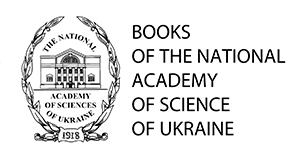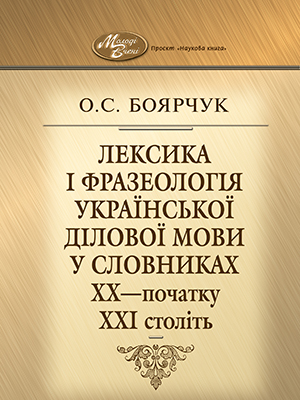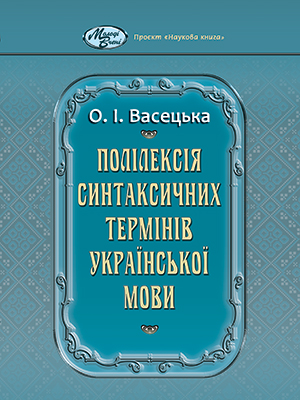Authors:
Vira Sulyma
PhD (candidate of philological sciences), Shevchenko Institute of Literature, leading researcher at the Department of Old Ukrainian Literature
ORCID https://orcid.org/0000-0002-1468-9553
Reviewers:
Oleksandr Boron
Doctor of Science (Philol.), Senior Researcher, Deputy Director, Head of Shevchenko Studies Department, Shevchenko Institute of Literature of the National Academy of Sciences of Ukraine
ORCID https://orcid.org/0000-0002-1014-2219
Sаvenko Oksana
Candidate of philological sciences, associate Professor of Departаment of Ukrainian and Foreign Literature Department Zhytomyr state University named after Ivan Franko Zhytomyr (Ukraine)
ORCID https://orcid.org/0000-0002-0117-0103
Affiliation:
Project: Scientific book
Year: 2024
Publisher: PH "Naukova Dumka"
Pages:
DOI:
https://doi.org/10.15407/978-966-00-1917-1
ISBN: 978-966-00-1917-1
Language: Ukrainian
How to Cite:
Abstract:
The “Synopsis of Research on Old Ukrainian Literature, 1991–2021” serves as a guide (digest) compiled for the 30th anniversary of Ukraine’s restored state independence. It is based on the abstracts of theses defended between 1991 and 2021 in the Specialized Council at Shevchenko Institute of Literature of the National Academy of Sciences of Ukraine. The presented texts trace the path of literary studies, offering insight into the literary legacy from a historical perspective shaped by new social and political realities, philosophical theories, scholarly practices, and humanitarian contexts that opened to Ukrainian philology after August 24, 1991. Within the contracted texts of abstracts, the collection presents works dealing with the records from the Middle Ages (10th to 15th centuries) and the early modern Baroque period (16th to 18th centuries); the comparative studies of old literature are surveyed through annotations.A separate bibliography of theses on related topics, defended at the meetings of specialized academic councils at Ukrainian higher education institutions from 1992 to 2021, significantly enhances the scope of scholarly research.The approaches and methods in these scholarly works vary significantly: they range from examining Orthodox-Catholic polemic materials within the framework of religious truth-seeking to applying formal and typological methods. Some studies highlight folk-mythological and church-canonical interpretations of holiness, revealing the figurative structure of hagiography within a mythopoetic and symbolic-didactic paradigm. Efforts to overcome outdated internal schemes of interpreting literary records were accompanied by the attempts to destroy stereotypes and myths of Ukraine’s reception in Western Europe. Scholars contributed substantially to examining the genre development of medieval and Baroque book poetry, school drama, and other literary forms represented in various languages, including Ukrainian, Church Slavonic, Polish, and Latin. They particularly focused on biblical hermeneutics, the construction of an artistic worldview, and the relationships between the authors’ theological concepts and contemporary philosophical ideas.
Keywords:
Ukrainian literature; literary records of the Middle Ages and Baroque; updated methods of interpretation, biblical hermeneutics, literary vision of the world.
References:









